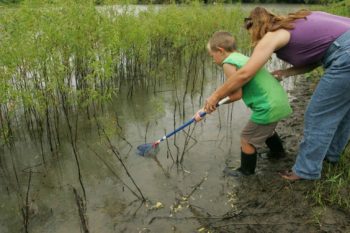Recycling and Environmental Conservation
 Recycling and Environmental Conservation
Recycling and Environmental Conservation
I am passionate about conserving resources and mindful recycling (or reducing waste). Each school year I want to help students become aware of what is going on around them in relevant and useful ways. My hope is for each child to connect with something that interests them as they become an advocate or steward for change and making a difference in their community.
Get Kids Excited
Initially, I get the kids excited about their learning environment by adopting a class mascot. Last year our class adopted sea otters. We learned that sea otters are important in managing sea urchins and keeping the ocean’s kelp forests healthy. Students were excited as they learned more about these topics:
- Sea otters are aquatic engineers and balance harm to ocean environments.
- Kelp feeds sea otters and absorbs carbon in the ocean.
- Management of microplastics and single use plastics in the environment can reduce pollution.
- Effective conservation strategies in the home, community, and the environment can have a significant impact on waste reduction.
- Kids can make a difference in their communities.
- Honey bees are important in balancing the ecosystem.
Learn About Recycling
Our end of the year project was to invent and create new objects on collage boards after collecting recycled trash at school and in neighborhoods. The students worked as teams to build a honey bee playground. They used plastic tape, food packaging, bubble wrap, cereal cups, straws, and plastic bags. As students worked on their projects, they learned it takes 20 years for a plastic bag to decompose and 200 years for a plastic straw. Now their next challenge will be to study products that can made from these byproducts. For example, I recently purchased a recycled purse made from cork and gave a friend a recycled cosmetic bag with recycled soaps.
Limit Waste
As we enter our next school year, what can students, parents, and teachers do together to limit the pollution and waste in our communities? Please share your ideas in the comments section below this blog.